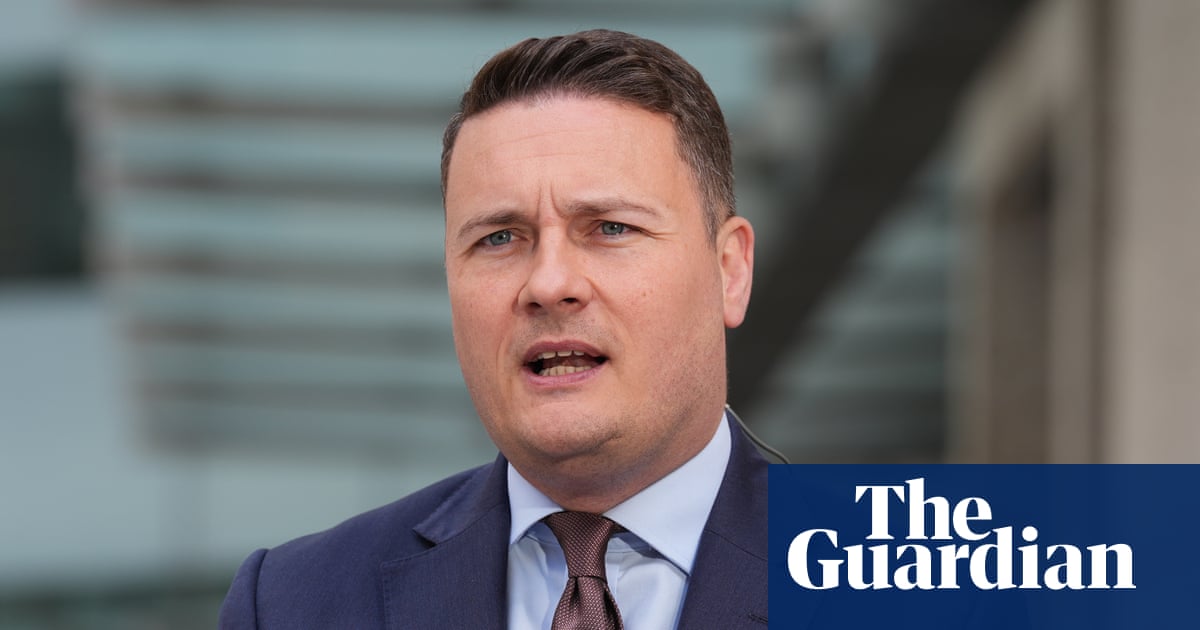Wes Streeting will launch a vocal defence of the party’s tax rises on Tuesday, pledging an extra 8.3m GP appointments to “end the 8am scramble” and telling his opponents that the investment would not be possible without the national insurance rise.
The health secretary, who has been the party’s mostvocal challenger on Reform, is expected to step up the attacks on opposition parties, which have dubbed the NICs rise for employers a “job tax” and said he would challenge those who had criticised the rise on how they would fund investment in the health service.
“None of this would be possible without the national insurance rise to fund the extra investment,” he said. “Other parties opposed the NICs rise, which would have meant more patients waiting for treatment, fewerGPsand no pay rises for staff.
“There will be bumps along the way, but theNHSis only on the road to recovery because of the extra investment funded by the NICs rise.”
The plans for a £102m investment drive in more than 1,000 GPs’ surgeries will bring the total investment in GPs to more than £1bn.
Streeting has said he believed the difficulty in getting a GP appointment is one of the public’s biggest frustrations with the British state – and causes more pressure on hospitals as conditions worsen without earlier primary care interventions.
The investment announced on Monday would be targeted at practices with the capacity to take on more patients but which are constrained by outdated buildings.
Streeting said the programme would be “quick fixes” to update surgeries so they could start seeing more patients quickly. Upgrade work is expected to start this summer with a target of delivering the projects by the end of 2026.
The plan to update surgeries was one of the key points in theLabourpeer Ara Darzi’s review of the NHS, commissioned in the early days of the government, which found outdated and inefficient buildings were a key barrier to care.
Darzi said many premises were “simply not fit for purpose” and surgeries were often in converted houses or “inflexible, outdated buildings”.
Streeting’s intervention is understood to be an acknowledgment that the party has not drawn a clear link between the tax rises and investment in public services and has not done enough to challenge parties such as Reform and the Conservatives on their alternatives.
He said the £26bn cash injection for the NHS at the autumn budget, where the NICs rise was announced, was already producing results, saying his department had “cut waiting lists by 200,000, 3 million more appointments have been delivered, and 100,000 more cancer patients have been diagnosed on time.”
“It is only because of the necessary decisions we took in the budget that we are able to invest in GP surgeries, start tackling the 8am scramble and deliver better services for patients.”
Streeting said thatReform UKleader Nigel Farage should be challenged directly on how he would fund healthcare. “He says he wants to end the NHS being publicly funded, and those who can afford it should pay. He should be honest with the public – how would that work? How much would patients be charged in insurance premiums?
“Would the wealthy get a better service if they pay more? Would the sick have to pay higher insurance premiums? He complains when challenged about his own words – well why don’t you set the record straight, Nigel? So far he’s been all mouth, no trousers.”
The Royal College of GPs welcomed the investment calling it an “important interim measure” and ackwnlowedged that more was needed.
Prof Kamila Hawthorne, chair of the RCGP, said: “Our last survey of members found that two in five GPs considered their premises unfit for purpose. This not only makes for a poor experience for both patients and practice staff, but it restricts the care and services a practice can provide.
“Nearly 90% of respondents to our survey said their practice didn’t have enough consulting rooms, and three-quarters didn’t have enough space to take on additional GP trainees.”
